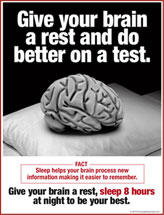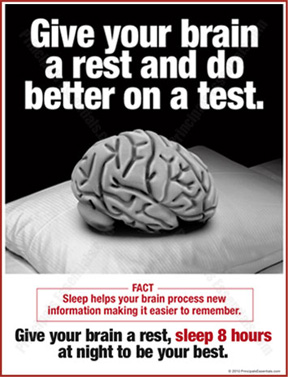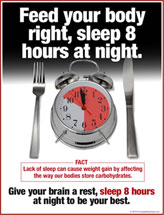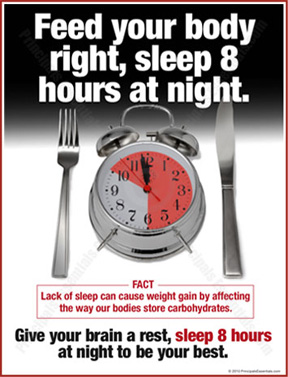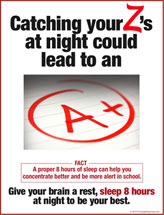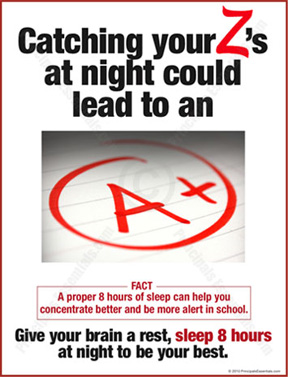In fact, tired students are more likely to become frustrated and drop out.
Most teenagers need about 8 to 9 hours of sleep each night. Getting the right amount of sleep is essential for students who want to do well on a test or play sports without fumbling. Unfortunately, many teenage students don't get enough sleep. Lack of sleep can cause an inability to concentrate, preventing a student from being their personal best.
For most students, the pressure to do well in school is more intense than when we were students, and it's harder to get by without studying hard. In addition, students also have other time demands, everything from sports, updating their social media pages to working a part-time job to save money for college.
Early school start times in some schools also might play a big role in sleep loss. Students who fall asleep after midnight may have to get up early for school, meaning that they might squeeze in 5 or 6 hours of sleep a night. A few hours of missed sleep each night may not seem like a big loss, but it can add up over a long period of time.
According to a National Sleep Foundation Sleep in America poll, more than 25% of high school students fall asleep in school, and experts have proven that lack of sleep can lead to poorer grades. Lack of sleep can also damage ones' ability to do and be their best.
Lack of sleep also is linked to emotional problems, such as feelings of sadness and depression. Sleep helps keep students happy and physically healthy by slowing the body's systems to re-energize us for everyday activities.
• 85% of teens reported NOT getting the recommended 8 hours of sleep on school nights
• 10% of children starting school suffer from sleep disturbances and these may lead to poor performance or behavioral difficulties.
• 73% of teens reported feeling depressed also report not getting enough sleep at night and being excessively sleepy during the day.
Communicate. Talk to students about the importance of sleep and highlight the facts with posters from our Healthy Sleep Series.
Call Home. Let parents know that their child appears to be exhibiting signs of exhaustion in school. Inform them that their child's lack of alertness could be effecting their academic performance.
Create Incentives. Give awards for improved student participation.
Increase Student Attendance. Students are more likely to be on time when school starts and less likely to be absent.
Happier Students. Students are in better moods and less likely to feel depressed.
Improved Performance. Students that get 8 hours or more of sleep are more alert, productive and more likely to get higher grades.
Scientists Link A Good Night's Sleep To Higher Test Scores



